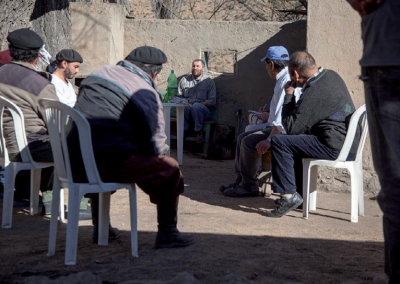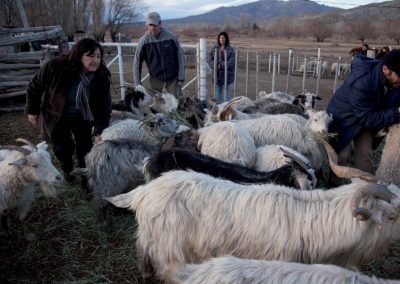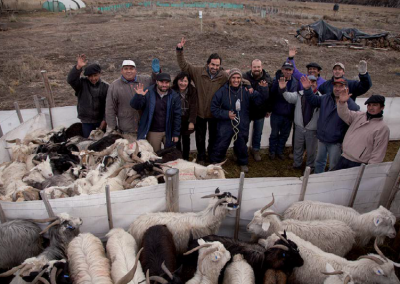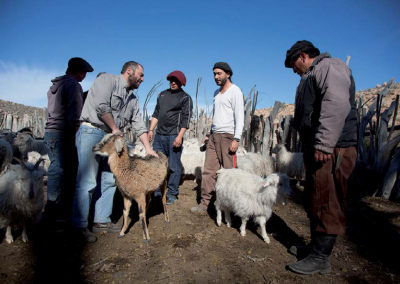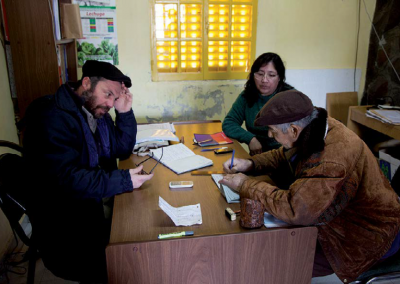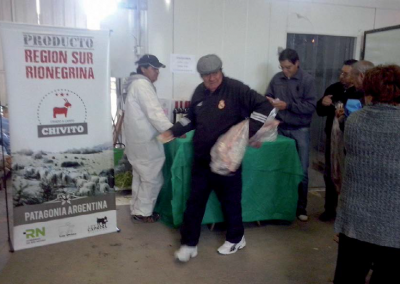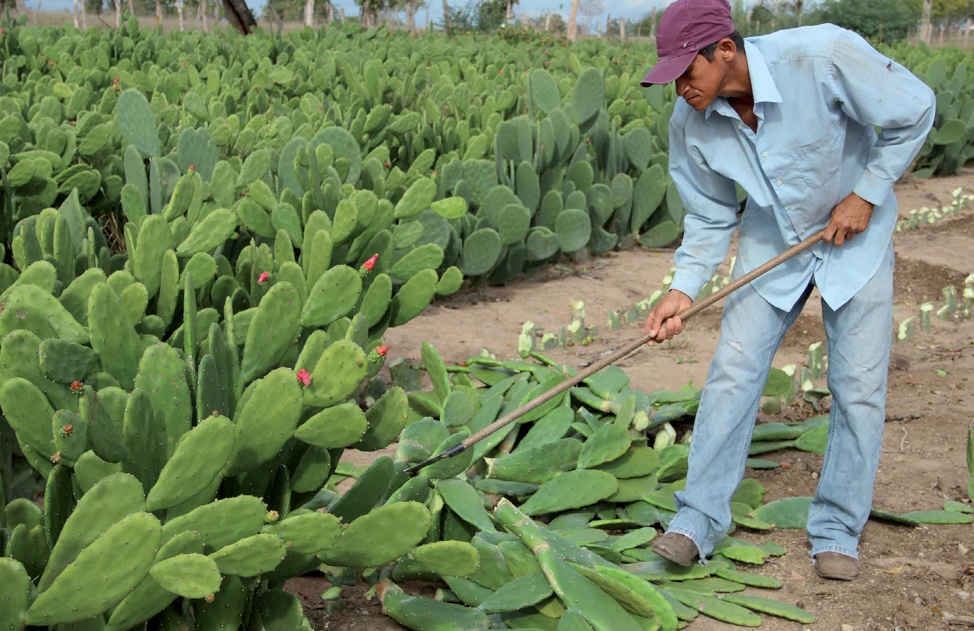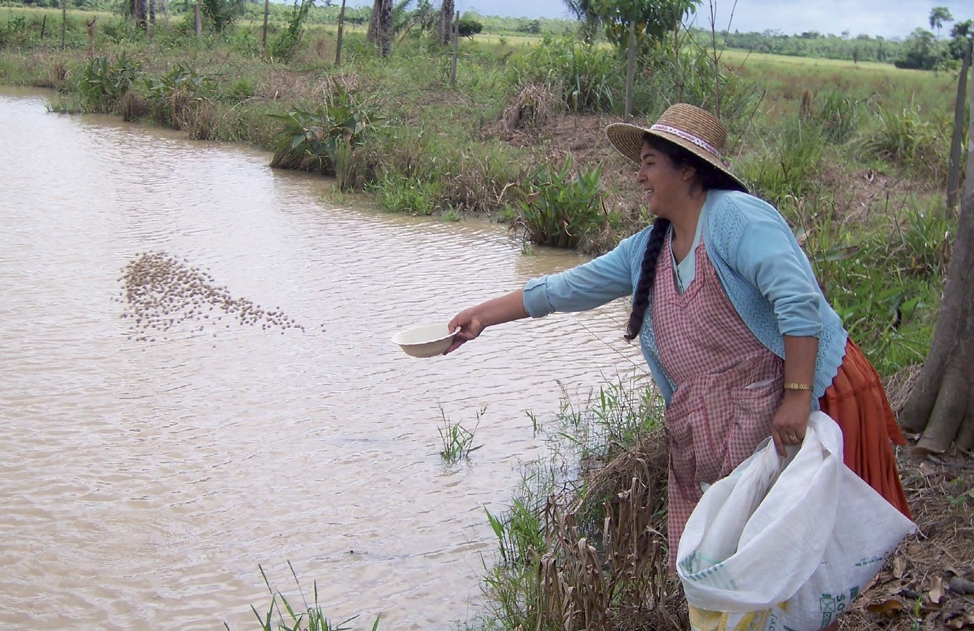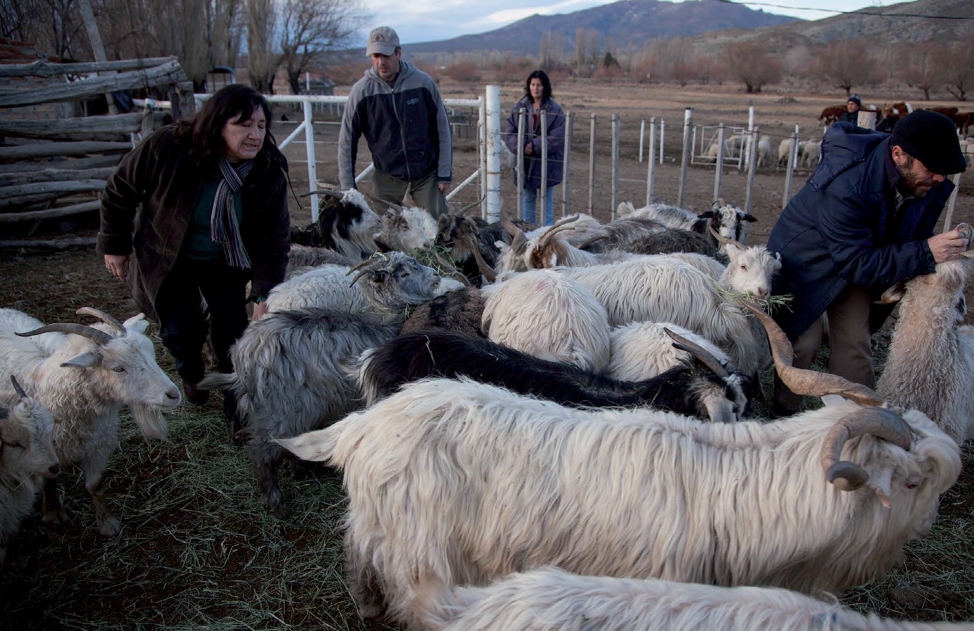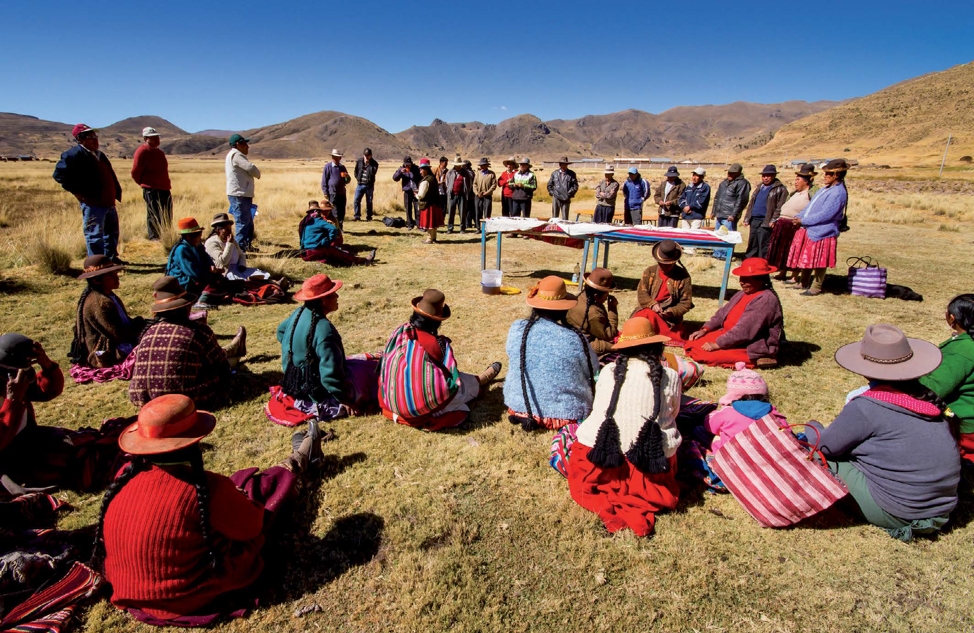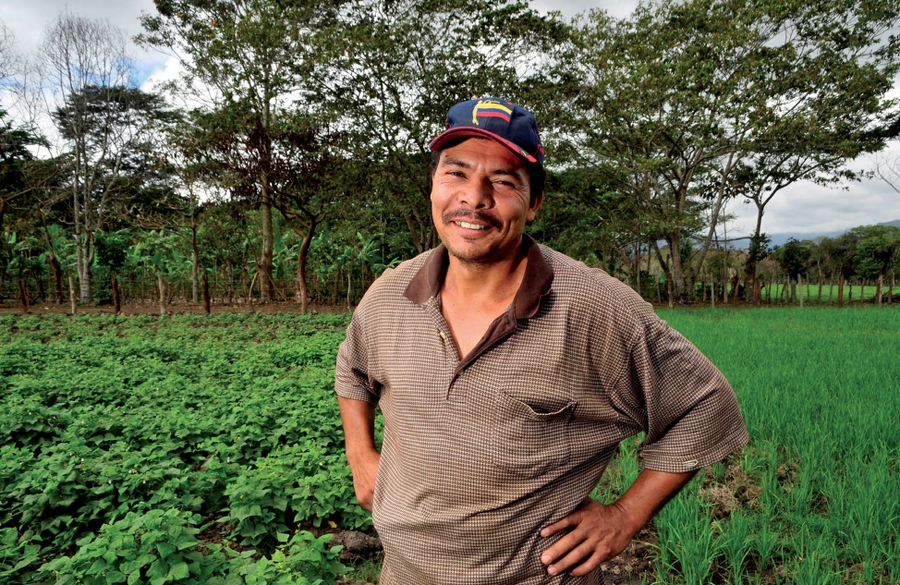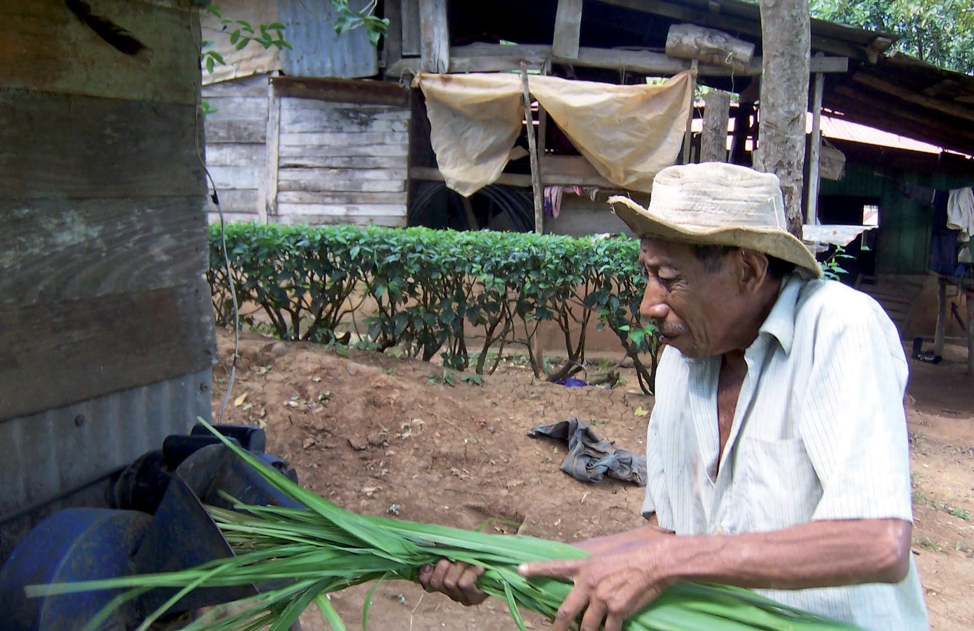Summary
Over the past two years, 90 agriculture families from southern Río Negro, backed by official and private organizations, carried out a project of technological, organizational, and commercial change, which is enabling them to address the climatic adversity that affected 2,800 producers, by means of diversifying production and developing a specialized quality-goat-meat chain.
The innovation consisted of detecting and introducing highly rustic native criollo goats from north Neuquén, leveraging the existing knowledge of producing food for farmers’ own consumption, in an area historically dedicated to wool and fibers.
Another innovation, especially for small producers, was that this change was implemented through a contract by which the farmer received 30 goats, to be returned as of the third year, for them to be reallocated to other families.
Shortly thereafter, given the prolificacy of the new species, the first animals were slaughtered in a meat processing plant with federal inspection, and precise logistics were designed to enable direct access to Bariloche’s Mercado Municipal, all with very smooth coordination among stakeholders.
farming families received
native criollo goats
to produce food for family consumption
For the time being, the model is helping to address the area’s problems with snow, drought, and volcanic ash, which decimated cattle, sheep, and Angora goats and generated losses of up to 95% of stock, compromising food security and farmers’ permanence.
Meanwhile, a new commercial channel starts to generate genuine income to participating families.
The future potential of the proposal is provided not only by the possibility of expanding the number of beneficiaries by involving neighboring farms, but also because it is a self-managing experience that can be replicated in other areas of the Argentine Patagonia that are low on meat.
The case recreates the importance of preserving biodiversity to overcome challenges posed by climate change. Meanwhile, it positions native criollo goats as an opportunity to add value to low-quality pastures, by sustainably producing animal protein.
For decision makers and leaders, this is a low-cost alternative with high human resource employment and high social impact that should be considered when drafting agricultural policies.
In summary, the initial objective was to satisfy rural families’ own consumption and reach the local urban population with competitively priced meat. Over the medium and long term, when scaling-up is achieved, developing gourmet products would be possible by launching a brand such as Chivito patagónico (Patagonia goats) to achieve a position in Bariloche’s tourism market, thus creating value.
 The case in six pictures
The case in six pictures
The case in six pictures
caso3-cabras-criollas-argentina
2- Producer and technicians from Río Negro inspecting goats before buying them in Neuquén.
caso3-cabras-criollas-2
3- Producers, technicians, and officials concentrating animals before transferring them to Río Negro.
caso3-cabras-criollas-4
5- Producer signing for the delivery of the herd with Pablo Losardo (left) and Ana María Cumilaf (behind), from the project’s executive board.


